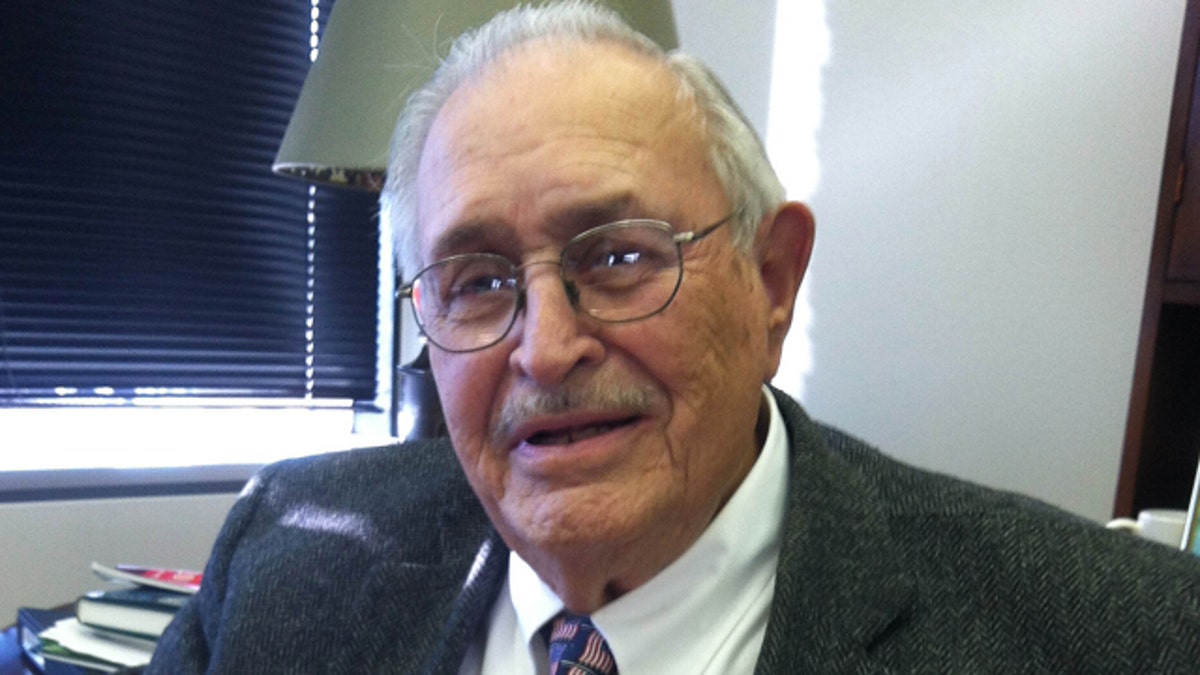
Lewis Reynolds, 85, was involuntarily sterilized at age 13 under a Virginia state law intended to prevent 'defective' people from reproducing. He went on to serve 30 years in the Marine Corps. Reynolds didn't know what had been done to him until years later. (AP Photo/The Virginian-Pilot, Bill Sizemore)
RICHMOND, Va. – Lewis Reynolds didn't understand what had been done to him when he was 13.
Years later, after getting married, the Lynchburg man discovered he couldn't father children. The reason: He had been sterilized by the state.
Reynolds was among more than 7,000 Virginians involuntarily sterilized between 1924 and 1979 under the Virginia Eugenical Sterilization Act.
Advocates for the surviving victims won a three-year fight Thursday when the Virginia General Assembly budgeted $400,000 to compensate them at the rate of $25,000 each.
It's welcome news, Reynolds said.
"I think they done me wrong," he said. "I couldn't have a family like everybody else does. They took my rights away."
Eugenics is the now-discredited movement that sought to improve the genetic composition of humankind by preventing those considered "defective" from reproducing. Virginia's Sterilization Act became a model for similar legislation passed around the country and the world, including Nazi Germany. Nationwide, 65,000 Americans were sterilized in 33 states, including more than 20,000 in California alone, said Mark Bold, executive director of the Christian Law Institute, which has been advocating the cause of the Virginia victims since 2013.
Virginia is the second state to approve compensation for victims of the eugenics program. North Carolina approved payments of $50,000 for each victim in 2013.
But the money from the state comes too late for most of those who were sterilized in Virginia, Bold said. There are only 11 known surviving victims, he said. Two have died in the past year, he said. Those who are left greeted the news with tears and hugs, Bold said.
The Virginia sterilizations were performed at six state institutions, including what is now known as Central Virginia Training Center in Lynchburg. When Reynolds was sterilized there, it was called the Virginia Colony for the Epileptic and Feeble Minded.
Reynolds was presumed to have epilepsy. As it turned out, he was exhibiting temporary symptoms from having been hit in the head with a rock.
Reynolds' first wife left him after the couple learned they couldn't have children. He married again, and this time the union lasted. His second wife, Delores, died seven years ago after 47 years of marriage.
There were times, he has said, when he and Delores would cry about their inability to have a family.
Nevertheless, he made the best of the life he had been handed.
He joined the Marine Corps and served in two wars. He was a military policeman and a firearms instructor, at one time teaching FBI agents how to shoot. He manned a 50-caliber machine gun in Korea. He retired from the corps after 30 years and found work as an electrician. At 87, he still takes occasional jobs wiring houses.
The Virginia eugenics law was upheld in the 1927 Supreme Court case Buck v. Bell, in which Justice Oliver Wendell Holmes Jr., writing for the majority, famously declared: "Three generations of imbeciles are enough."
Revulsion over the state's actions brought together lawmakers from across the political spectrum, united in the belief that it was time to write the final page in a shameful chapter of the state's history.
The compensation measure was sponsored by Del. Ben Cline, a conservative Republican from Rockbridge County, and Del. Patrick Hope, a liberal Democrat from Arlington County.
"There was a growing consensus that we needed to act while we still had the opportunity to look these people in the eye and acknowledge the wrong that was committed against them so many years ago," Cline said.
The original legislation called for payments of $50,000 each. Even that amount was inadequate to address the wrong that was done, in Bold's view.
"But it's symbolic," he said. "Now the healing and forgiveness can begin."

